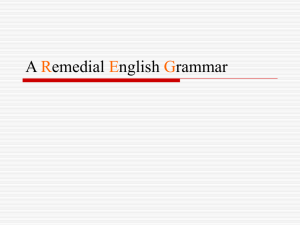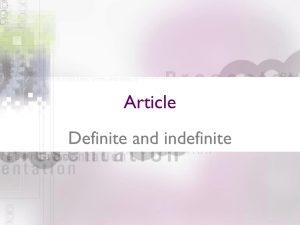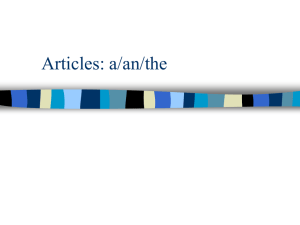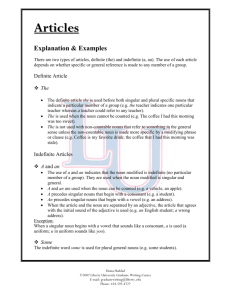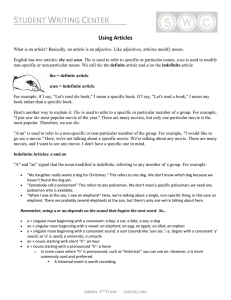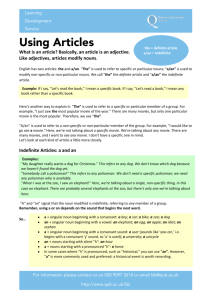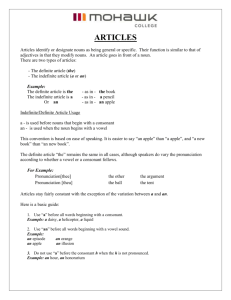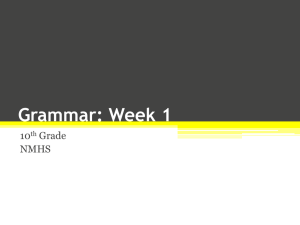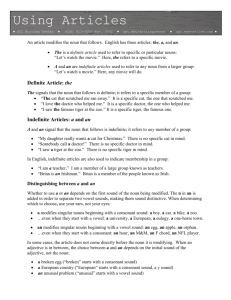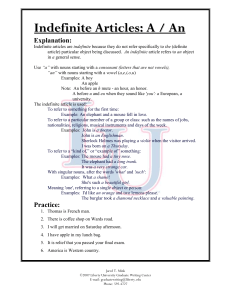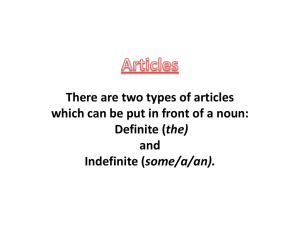Articles - Biomedicgow
advertisement
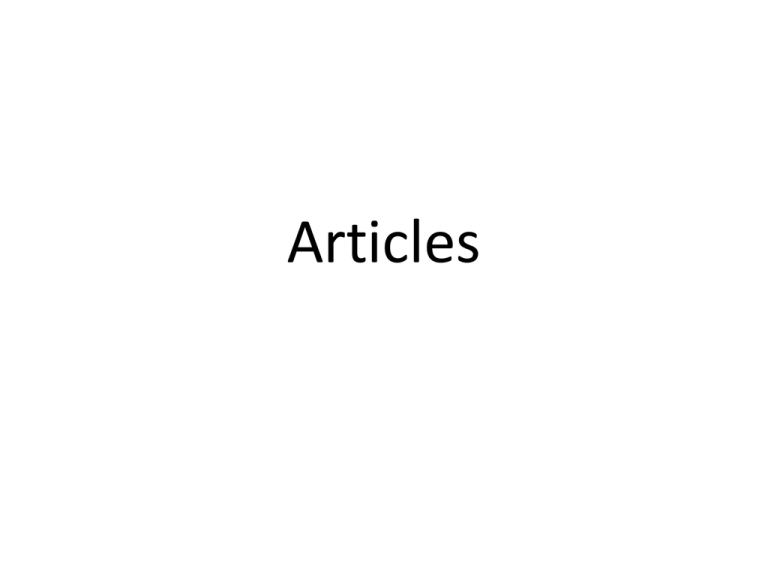
Articles What is the main function of articles? • They are used in order to modify nouns. • They could be definite • They could be indefinite Indefinite a/an • "A" and "an" indicate that the noun modified is indefinite, referring to any member of a group. For example: • "My daughter really wants a cat for her birthday." This refers to any cat. We don't know which cat because we haven't found the cat yet. • "Somebody call a policeman!" This refers to any policeman. We don't need a specific policeman; we need any policeman who is available. • "When I was at the zoo, I saw an elephant!" Here, we're talking about a single, non-specific thing, in this case an elephant. There are probably several elephants at the zoo, but there's only one we're talking about here. Remember, using a or an depends on the sound (phonological pattern) that begins the next word. So... • a + singular noun beginning with a consonant: a boy; a car; a bike; a zoo; a dog • an + singular noun beginning with a vowel: an elephant; an egg; an apple; an ipod; an orphan • a + singular noun beginning with a consonant sound: because it sounds like “y” a university; a unicycle • an + nouns starting with silent "h": an hour • a + nouns starting with a pronounced "h": a horse • In some cases where "h" is pronounced, such as "historical," you can use an. However, a is more commonly used and preferred. • A historical event is worth recording. • Remember that these rules also apply when you use acronyms: • Introductory Composition at Purdue (ICaP) handles first-year writing at the University. Therefore, an ICaP memo generally discusses issues concerning English 106 instructors. • Another case where this rule applies is when acronyms start with consonant letters but have vowel sounds: • An MSDS (material safety data sheet) was used to record the data. An SPCC plan (Spill Prevention Control and Countermeasures plan) will help us prepare for the worst. • f the noun is modified by an adjective, the choice between a and an depends on the initial sound of the adjective that immediately follows the article: • a broken egg • an unusual problem • a European country • The indefinite articles are used to indicate membership in a group: • I am a teacher. (I am a member of a large group known as teachers.) • Brian is an Irishman. (Brian is a member of the people known as Irish.) • "A/an" can be used only with count nouns. • "I need a bottle of water." • "I need a new glass of milk.“ • Most of the time, you can't say, "She wants a water," unless you're implying, say, a bottle of water.
